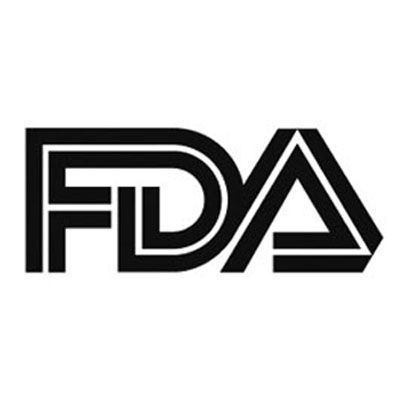FDA Approves Another Amivantamab CDx for Detection of EGFR Exon 20-Positive NSCLC
The Ocomine Dx Target Test is now FDA-approved to help identify eligible patients to be treated with amivantamab.

The FDA has granted approval to the Ocomine Dx Target Test as a companion diagnostic (CDx) to assist with the identification of patients with EGFR exon 20 insertion-positive non–small cell lung cancer (NSCLC) who may benefit from treatment with amivantamab-vmjw (Rybrevant), according to a press release by Thermo Fisher Scientific.
Amivantamab, a bispecific antibody that targeted both EGFR and MET, was granted FDA approval in May 2021 for the treatment of patients with NSCLC in patients whose tumors have EGFR exon 20 insertion mutations. The application for approval was supported by results from the phase 1 CHRYSALIS clinical trial (NCT02609776). In the study, amivantamab achieved a RR of 40% (95% CI, 29%-51%), which included 3 complete responses, 29 partial responses, and 39 cases of stable disease. The duration of response was 11.1 months (95% CI, 6.9-not reached.
At the time of the approval, another CDx was simultaneously granted FDA approval to identify patients with EGFR exon 20-positive NSCLC who may benefit from the targeted therapy.
"The FDA's approval of Oncomine Dx Target Test enables clinicians to use FFPE tissue samples to identify patients in the U.S. who may benefit from this important new therapy," said Garret Hampton, president, clinical next-generation sequencing and oncology at Thermo Fisher Scientific. "In situations where conventional testing may miss key mutations that could match patients with targeted therapies, NGS technology is vital to make these connections and advance precision medicine. We look forward to expanding registration of the test as a companion diagnostic for Rybrevant globally to help improve outcomes for more patients."
The Oncomine Dx Target Test was approved for its ability to simultaneously evaluate 23 genes associated with NSCLC. The first approval for the assay was granted in 2017, and today it has approval as a CDx for 6 FDA-approved targeted therapies for NSCLC, and 1 indication for cholangiocarcinoma. In addition to its United States indications, the Oncomine Dx Target Test has approval in Japan as a CDx for the detection of EGFR, ALK ROS1, BRAF, and RET. Collectively, these biomarkers are associated with 10 targeted therapies approved for the treatment of patients with NSCLC in Japan. The test is also available in 15 other countries.
The approval of the Oncomine Dx Target Test to identify patients with EGFR-positive NSCLC who may benefit from amivantamab is the second approval for the assays for this patient subgroup. It is the first and only NGS CDx formalin-fixed, FFPE tissue for determining which patients who progressed on or after platinum-based chemotherapy may be eligible to receive amivantamab.
Reference:
FDA approves NGS-based companion diagnostic for EGFR Exon20 insertion mutant non-small cell lung cancer tumor tissue. News release. December 9, 2021. Accessed December 9, 2021. https://bit.ly/3EBbAtz
Kim Evaluates New Regimens for EGFR+ Lung Cancer
January 20th 2025During a Community Case Forum event in partnership with the Medical Oncology Association of Southern California, Edward S. Kim, MD, MBA, discussed the FLAURA2 and MARIPOSA trials of newer regimens for EGFR-positive lung cancer.
Read More